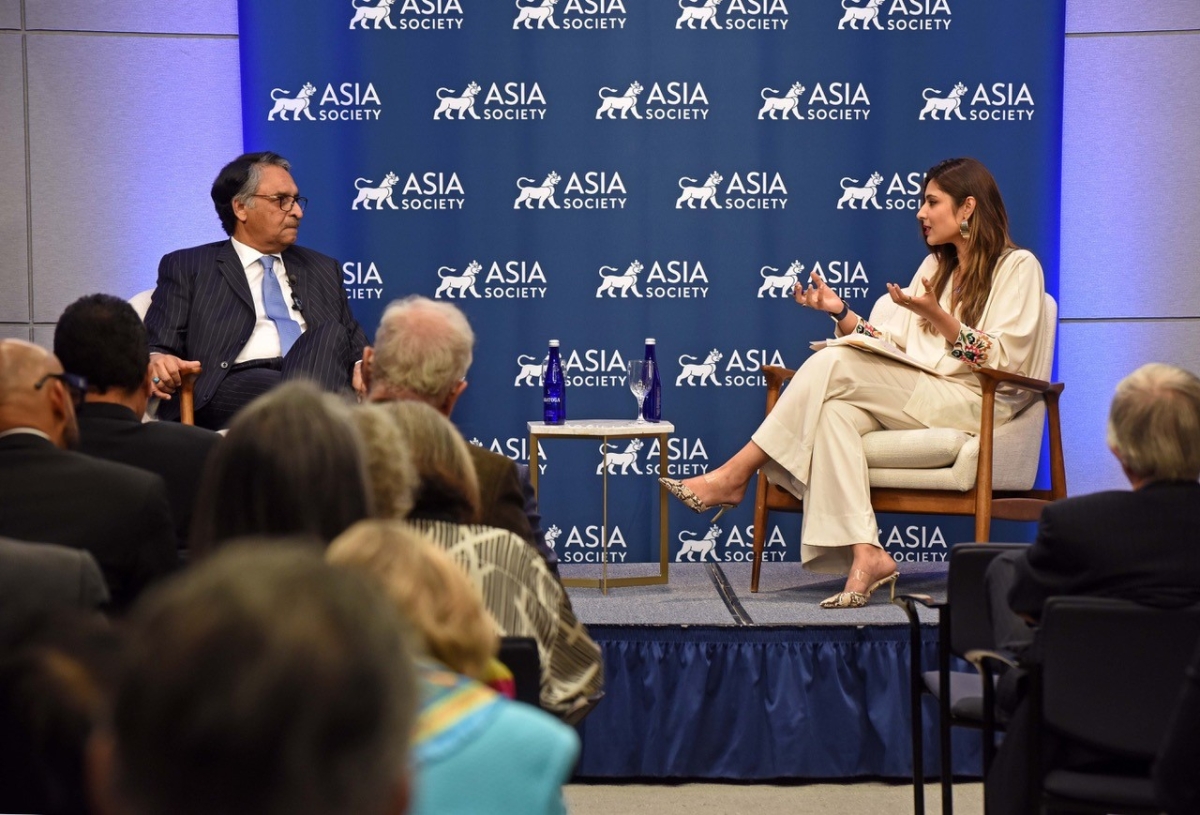Farwa Aamer’s work at the Asia Society Policy Institute vividly showcases the remarkable outcomes that arise when a fervent dedication to research and policy converges with a deep-seated appreciation for the imperative of forging a more secure, integrated, and sustainable global landscape.
She builds conversations that catalyze powerful solutions. Farwa serves as the Director of South Asia Initiatives at the Asia Society Policy Institute (ASPI) in New York where she leads the institute’s policy work and projects in South Asia.
Prior to her work at ASPI, Farwa worked at the Stimson Center where she led research on the security, political, and socio-economic dimensions of transboundary river governance in the Himalayan region including the disproportionate impacts of climate change and water insecurity on women. Through her work, she helped to facilitate greater regional cooperation on issues and opportunities concerning water, energy, climate change, and sustainable development in South Asia, MENA, and Central Asia.
 Director Aamer’s work often focuses on the importance of transboundary water politics including a multitude of publications, interviews, and panels like her upcoming panel, Politics on Water in the Himalayan Region.
Director Aamer’s work often focuses on the importance of transboundary water politics including a multitude of publications, interviews, and panels like her upcoming panel, Politics on Water in the Himalayan Region.
“As somebody who has been studying and analyzing transboundary water politics in the Himalayas for some years now, I cannot overstate the critical importance of the panel discussion on this pressing issue.
…The Himalayan region, often regarded as the ‘water tower of Asia,’ faces an escalating crisis of water stress exacerbated by rapid population growth, urbanization, and the looming specter of climate change. The consequences of this crisis are not abstract; they are painfully tangible, affecting the lives of millions across the region.
However, the challenges go beyond mere access to water; they extend to the complex dynamics of transboundary watercourses, where disputes can escalate into conflicts with far-reaching consequences. This upcoming panel’s focus on transboundary water politics is crucial because it underscores the interconnectedness of water issues across borders. The Himalayan rivers also pose significant challenges in terms of governance, cooperation, and conflict resolution. Ignoring these challenges could lead to economic losses, strained relations between nations, humanitarian crises, and even destabilization of already fragile regions.” A Note from Director Aamer:
When asked about her hopes for her work at Asia Society and her advice for young women from Asia and the Asian Diaspora, Director Aamer shared this:
“It’s heartening to witness the increasing presence of South Asian women in various sectors of the workforce today. The region’s history is rich with women leaders, especially in politics, like Indira Gandhi, Fatima Ali Jinnah, Sheikh Hasina, Benazir Bhutto, among others, who have left an indelible mark regardless of the challenges they faced.
To the young girls and women of Asian heritage, I urge you to never cease dreaming and aiming higher. Take initiative and become the architects of your own destinies. While the journey may present obstacles, I firmly believe that today’s women are more cognizant, evolved, and empowered. Despite systemic barriers, we possess the capability to not only navigate but also transform the system itself.
Embrace your heritage, leverage your unique perspectives, and let your voices resound in every space you inhabit.”
Happy Women’s History Month from Asia Society and the many women like Farwa who make an impact every day! Stay tuned each week as we share just a few of their stories.










